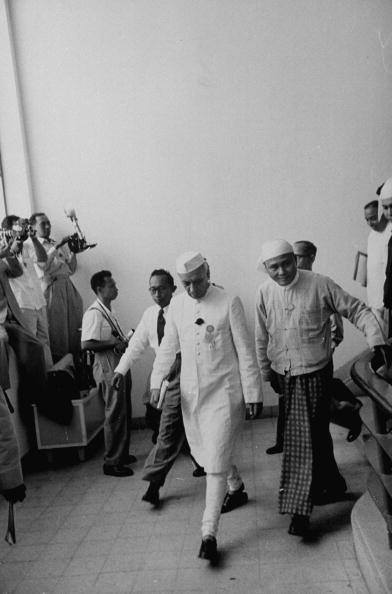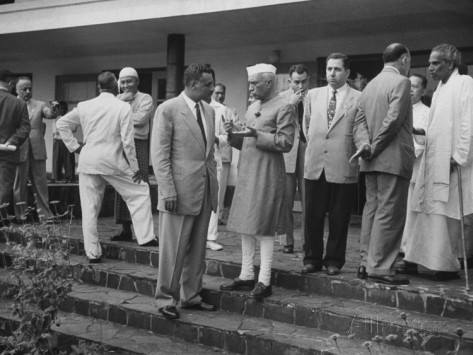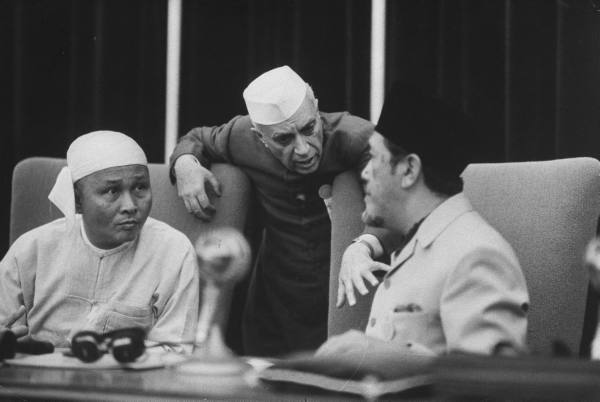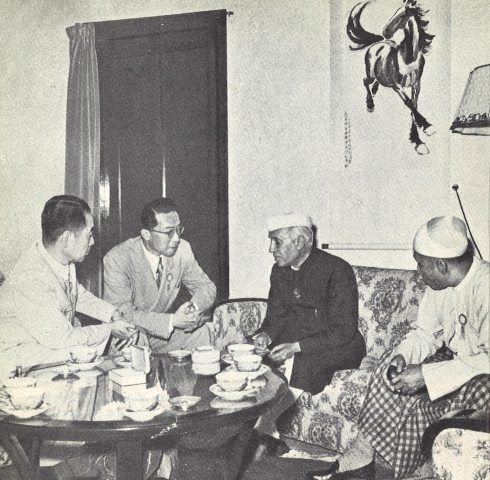
Indian Prime Minister Jawahalal Nehru and Burmese Prime Minister U Nu

Reception at the Conference

U Nu and Nehru in discussion with Prime Minister of Indonesia, Ali Sastroamidjojo

Chinese Premier Zhou Enlai with Nehru and U Nu
18 April 1955 - 24 April 1955
Burma's Key Role in the 1955 Asian-African Bandung Conference
room Indonesia
people U Nu U Thant Pandit Nehru President Nasser Krishna Menon Sukarno U Thein Sein Chou Enlai
The first Asian-African summit was held in Bandung, Indonesia, over 18-24 April 1955. Burma was one of the principal organizers of the Bandung Conference, together with India, Pakistan, Indonesia and Ceylon. The conference brought together 29 leaders of the newly independent non-Western world, representing no fewer than 1.5 billion people, more than half the entire planet.
The host, Indonesia's president Sukarno called it "The First inter-continental conference of coloured people - so-called coloured peoples - in the history of mankind". Many of the countries represented had just won bloody victories over their former colonial masters. They were dreaming of a very different future. They were also worried about being trapped in the new Cold War between the United States and the Soviet Union. A second conference, in Belgrade, in 1960, would lead to what became the "Non-Aligned Movement".
U Nu headed Burma's delegation to Bandung, accompanied by U Thant who was also a secretary of the conference as well as Justice Myint Thein and others.
The conference was split on a key ideological issue: whether to equally condemn Soviet and Western imperialism. Some, like India, wanted to only condemn the West. Burma sided with Pakistan and Ceylon in wanting to condemn communist aggression as well. Burma, though, had insisted on China's participation. It tried as well to insist on Israel's participation but was unsuccessful.